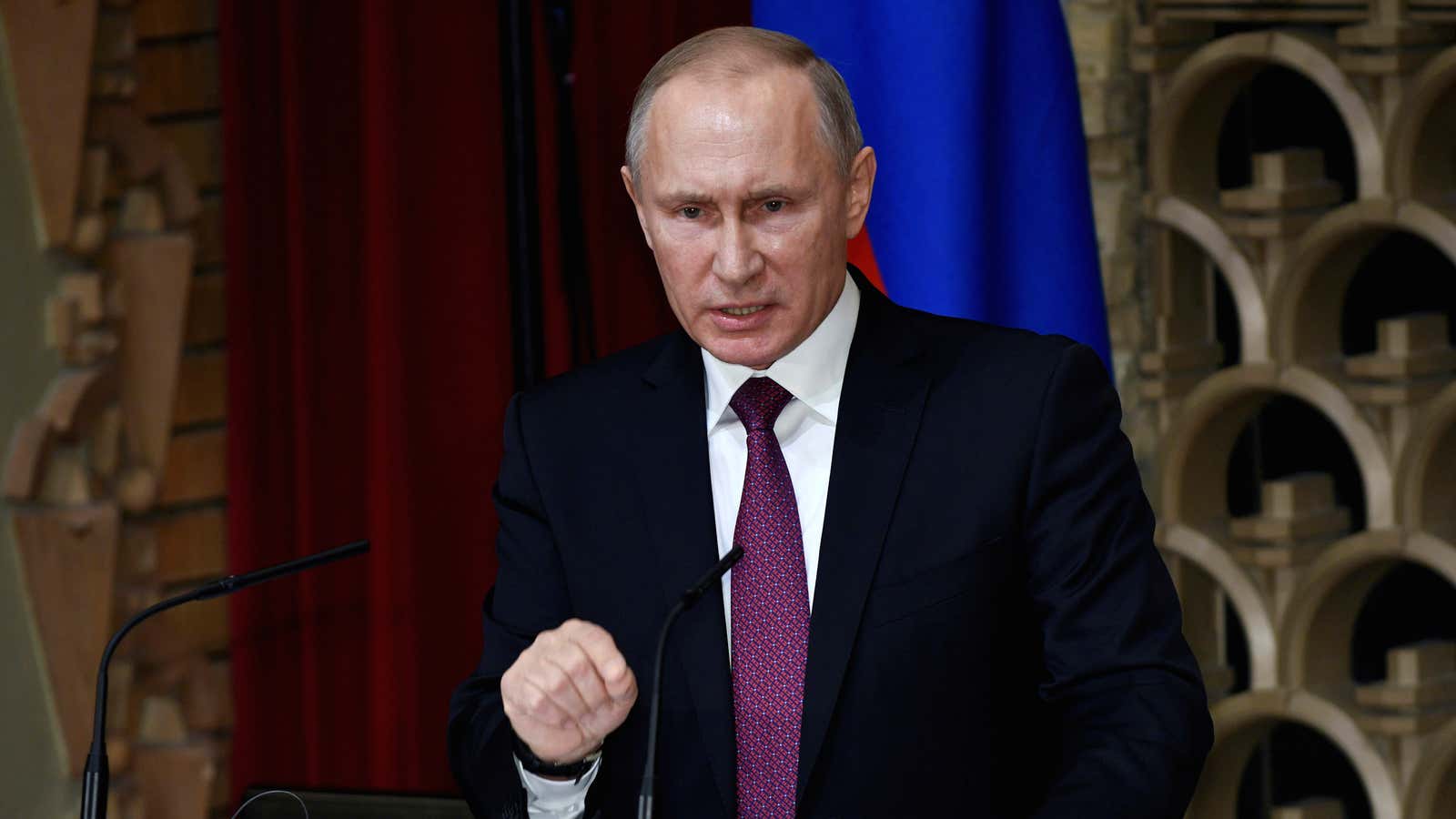Mysterious arrests. Disappearances. A far away death in an unknown gulag concealed from family for a generation. These are realities for those of us whose families came to the US from Eastern Europe in the aftermath of the last world war and subsequent Soviet occupation. These are also the reasons why every act against Donald Trump now is an act of patriotism on behalf of the American people.
During the 1970s and 1980s, KGB defectors warned Americans to beware Russian interference. Those warnings were mostly buried. Today, however, Trump’s rise should be examined in the context of these methods of Kremlin ideological subversion and psychological warfare.
The confluence of evidence suggests Donald Trump was supported, and his campaign efforts bolstered, by Russia this election season (as the National Security Agency and the Central Intelligence Agency have concluded). Plucked from the KGB’s (now FSB’s) playbook for installing world leaders sympathetic to Moscow, we are now witnessing what Russian intelligence officers would refer to as “active measures.”
The first phase of this strategy is to bombard a nation with propaganda, usually of a racist, anti-Semitic nature. The point of this propaganda is to sow the seeds of discord among a population. The second phase is the instigation of incidents that can be used and broadcast widely for the purposes of demoralization. In phase three, Russia installs a friendly leader and leverages the economy according to Moscow’s will.
In the US, phase one was accomplished through the spread of propaganda, often but not always in the form of “fake news,” on social media and at Trump’s rallies. Mainstream media networks played a useful role here by allowing Trump’s rallies to be broadcast unfiltered and often unchallenged, further normalizing Trump’s inflammatory rhetoric. We are now between the second phase, with its intent of demoralization. We must never allow the final stage.
History shows us what happens when Soviet ideology and power mix. In George F. Kennan’s seminal “Sources of Soviet Conduct,” published in Foreign Affairs in 1947, the former US ambassador to Moscow outlines Stalin’s expansionist philosophy in the context of Marxist-Leninist thought. In the opening paragraphs, he clearly articulates the Soviet-era doctrine, some of which still holds sway in the Kremlin today.
Stalin believed a country built on free trade and open markets would eventually slip into a form of late-stage capitalism that in turn leads to anarchy, war, and ultimately class revolution. The answer? State control over everything from the economy to private life. Citizens in this system become subjects instead of active participants in society.
In other words, Russian influence over US policy would not simply represent a political shift—it would set the stage for a possible humanitarian disaster. Stalin’s interpretation of this Marxist fantasia evolved into gulags and the deaths of millions. Putin’s interpretation is a sort of Stalin-lite philosophy, in which central control of the economy is handed over to a coterie of loyal elites known as oligarchs. Arrests and assassinations are used to maintain law and order (a rallying cry for Trump during the campaign). Absolute control is still the goal.
In the former Soviet bloc, the memory of the Cold War still looms large. But the majority of Americans don’t understand the reality of things like purges, gulags, disappearances, and state terror. Americans need to wake up, right now, to a different era—an era in which the institutions they were taught would always protect them may be weakened, or even destroyed.
Trump has arguably already started this process in the US via his cabinet appointments. There are other warning signs as well. After watching Trump and his family interviewed in their gilded penthouse on 60 Minutes, it’s clear money is the primary language he speaks. This is also the language most familiar to the Kremlin, and to Putin, who after nearly two decades spent systematically plundering the Russian state of its resources may very well be the world’s richest man.
Indeed, Trump’s gilded penthouse bears a striking resemblance to the palace of the deposed former leader of Ukraine and Putin ally, Viktor Yanukovych. When Yanukovych fled his palace in 2014, he left behind a dizzying array of documents and lavish accouterment, including a personal zoo. Yanukovych’s greed came with a high cost; ultimately it was his country’s sovereignty, economy, and the welfare of the Ukrainian people.
And yet, too many Americans still remain blind to the dangers of Trump’s presidency. As KGB defector Yuri Bezmenov told American television audiences three decades ago, when it comes to Russia’s plan for world domination, the American “will refuse to believe it until he receives a kick in the fat bottom. When a military boot crushes him, then he will understand it.”
